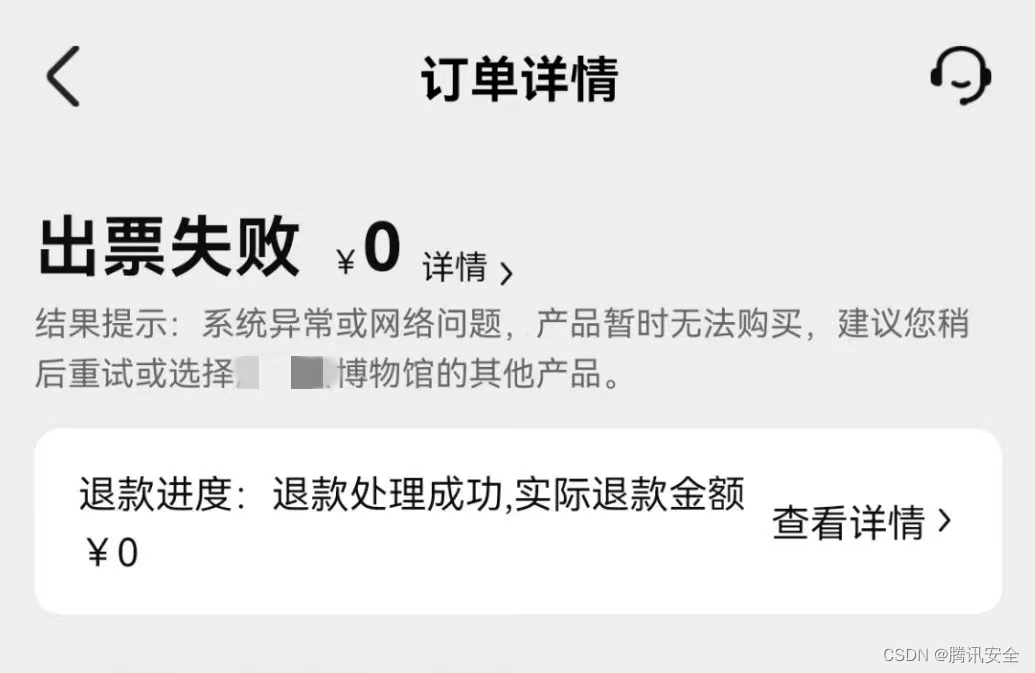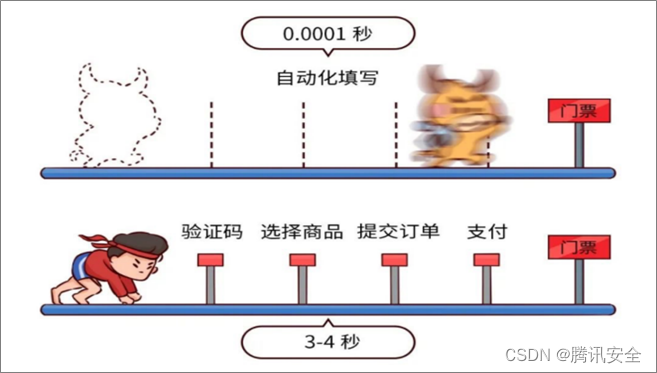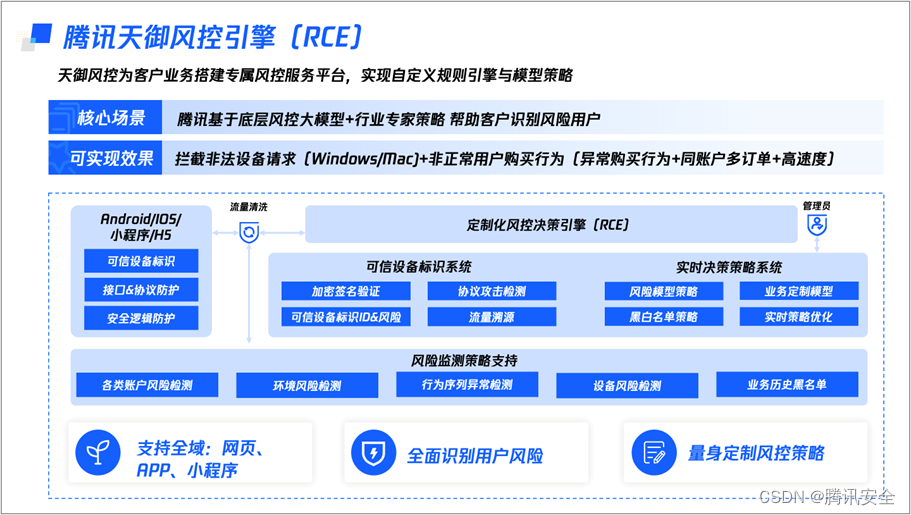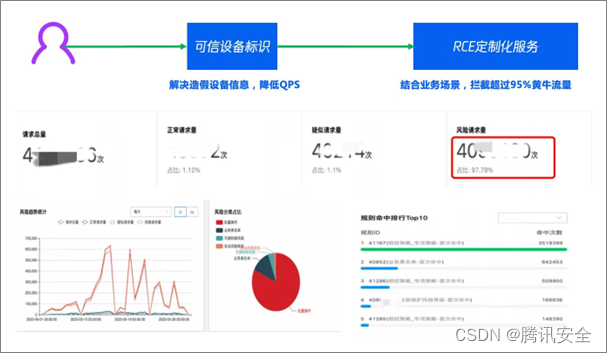Since the beginning of this year, the culture and tourism industry has recovered strongly. Celebrity concerts, popular scenic spots, and museums and museums have become the hardest-hit areas where "scalpers" are raging. High-priced ticket reselling and robbing services have emerged one after another, seriously disrupting the order of the cultural and tourism ticketing market. .
How to solve the "stubborn disease" of scalpers has become a topic of common concern in the cultural and travel industry. Recently, Tencent Security held the "Cultural Tourism Industry Anti-Scalper Seminar" in Beijing. More than 30 experts from the Ministry of Culture and Tourism, well-known domestic scenic spots, theme parks, and ticketing platform companies focused on the construction of smart scenic spot ticket systems and combated scalpers. In-depth discussions were conducted on topics such as ticket swiping.
The cultural tourism market has been suffering from "scalpers" for a long time
Tickets for the Old Summer Palace were sold out for the first time in 163 years, and the camels in Dunhuang were crowded in the desert... This year, the cultural tourism market has ushered in a new round of explosion. According to statistics from the Ministry of Culture and Tourism, in the first half of 2023, the total number of domestic tourists reached 23.84. billion, an increase of 929 million over the same period of the previous year, a year-on-year increase of 63.9%.
Against the backdrop of an accelerated recovery in cultural and tourism consumption, scalpers are focusing on the scarce ticket resources, and tickets for some popular concerts, scenic spots, and cultural museums and science and technology museums are sold out in seconds. However, tickets that were originally booked out are frequently revealed to be available through price increases, bundled services, etc., causing many tourists to question: Tourists cannot make reservations, but "scalpers" tickets are flying all over the sky.
Zhang Hongyun, a senior risk control expert at Tencent Security, mentioned in his sharing that scalpers usually obtain real-life information of tourists through "grabbing on behalf" and virtual entrances on third-party platforms, and then cooperate with automated tools to grab tickets. "You will find that the official channels of many scenic spots have not yet opened for sale, and third-party platforms can place orders in advance. This is the usual method of scalpers. First collect tourist information, and then use automated tools to grab tickets when tickets go on sale. If there is no If you grab it, it will be called 'failure to issue a ticket' and you will be refunded directly."

Failed to issue a ticket on the third-party platform
Zhang Hongyun said that generally speaking, buying tickets requires completing the process of filling in information, selecting, submitting, and paying. If it is operated by a real person, it will take three to four seconds at the fastest to complete the entire process, while the automated script can complete the automated filling of all processes in 0.0001 seconds. . "This is the real reason why it is impossible to get tickets by relying on hand speed."

Schematic diagram of the comparison between real-person ticket grabbing and automated tool ticket grabbing
Not only that, criminals will also violently crack the API interface of the ticketing platform to directly reach the payment link. The person in charge of informatization of a well-known ticketing platform company said at the seminar, "We reviewed an abnormal ticket sales, and found through platform analysis that there were a large number of untracked orders, and the number of pages visited and the number of users were both zero. But the payment was made."
At the seminar, a number of people in charge of informatization of scenic spots said that scalpers have seriously disrupted the cultural tourism market. For tourists, scalpers harm the interests of real tourists. Many tourists can only choose to buy tickets on second-hand platforms, which cost several times the normal ticket price, causing great inconvenience and economic losses to tourists. For scenic spots, scalpers have disrupted the normal operating order of scenic spots, and the reservation platforms of some popular scenic spots and museums are often in a state of no tickets, which has caused complaints from tourists and bad public opinion. For the society, it exacerbates the scarcity of cultural resources and disrupts the fair and harmonious market order.
Fight scalpers with technology
"Scalpers use real tourists' information obtained from third-party platforms to snatch tickets. The difficulty is that we can't tell which ones are bought by real tourists and which ones are bought by scalpers," said the person in charge of informatization at a science and technology museum. . It is necessary to prevent scalpers and reduce accidental injuries to normal users, which brings great challenges to the risk control and defense of scenic spots.
Wang Xu, deputy general manager of Tencent Security, said at the seminar that since the beginning of this year, Tencent Security has helped many well-known domestic scenic spots to combat scalpers . To simulate the behavior of real people, the general model is traditionally used to emphasize rule supplementation. It needs to be transformed into a "dynamic model + dynamic strategy" to adjust the risk control strategy in real time according to the confrontation situation.
According to Zhang Hongyun, Tencent's security cultural tourism solution can help scenic spots build multi-layer protection, fully detect and intercept scalpers' ticket swiping behavior within 200 milliseconds, and achieve fast, real-time and non-perceptual protection.
The first layer of protection is Tencent's Web Application Firewall (WAF), which identifies scalper attacks by strengthening front-end confrontation, CC protection, intelligent analysis, and BOT custom settings to intercept machine traffic.
The second layer of protection is to deal with the verification code of the traditional machine brush, and carry out man-machine verification through the principle of the Turing test, and intercept the machine brush traffic.
The third layer of protection is to establish a trusted device identifier, generate a unique trusted device identifier for each ticket grabbing device through intelligent analysis and AI algorithms, identify risk factors from the environment side, and intercept abnormal scalper requests.
The fourth layer of protection is Tencent's large risk control model + customized risk control decision-making engine, which can quickly build an exclusive risk control service platform for scenic spots, and realize custom rule engines and model strategies.
 Tencent Tianyu Risk Control Engine (RCE)
Tencent Tianyu Risk Control Engine (RCE)
During the summer vacation, a ticketing platform was attacked by scalpers. After quickly deploying Tencent Tianyu’s wind control solution, it successfully intercepted more than 95% of malicious ticketing traffic. Tickets were sold out in one second before they were gradually consumed in half an hour. While reducing the load on the ticketing platform and ensuring the stable and smooth operation of the ticketing business, most real users can purchase tickets at the original price.

Platform data: Intercept over 95% scalper traffic
In addition to the problem of scalpers swiping tickets, the ticketing systems of major scenic spots are also facing challenges of high concurrency and large traffic. Dong Chunming, Chief Architect of Tongcheng-Elong, said in his speech, "During peak business traffic periods such as May 1st and summer vacations, under the traditional IT architecture, it is necessary to purchase twice as many servers to handle it, but after the holidays, the servers are idle. So we use Tencent Cloud TKE has built a hybrid cloud architecture, which realizes a high-availability architecture with elastic expansion and on-demand use."
In fact, the increasingly rampant scalpers have also attracted the attention of the Ministry of Culture and Tourism and the public security department, and they have intensified their efforts to rectify the scalpers. On July 25, the Ministry of Culture and Tourism issued the "Notice on Further Improving the Open Management Level of Summer Tourist Scenic Spots", emphasizing the strengthening of crackdowns on "scalpers", illegal hoarding and scalping of tickets on third-party platforms, and improving the distribution of tickets in tourist attractions system, effectively preventing "scalpers" from crowding out ticket sources.